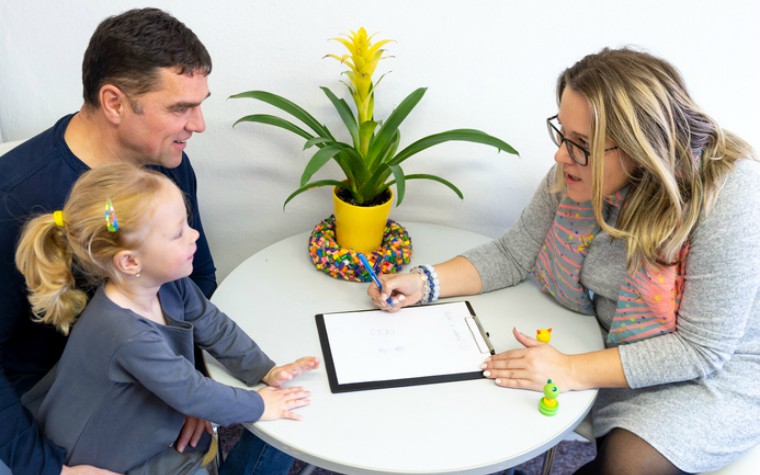
 This article comprises a summary taken from Community Care Inform Children about working with parents of looked-after children. The full practice guidance content covers working well with parents, supporting behaviour change, assessment, rehabilitation and various practice models, examples, analysis and techniques. Inform Children subscribers can access the full content here. The guide is written by Dan Martin, principal officer for social care at the National Children’s Bureau.
This article comprises a summary taken from Community Care Inform Children about working with parents of looked-after children. The full practice guidance content covers working well with parents, supporting behaviour change, assessment, rehabilitation and various practice models, examples, analysis and techniques. Inform Children subscribers can access the full content here. The guide is written by Dan Martin, principal officer for social care at the National Children’s Bureau.It can be very challenging to work with parents whose children are looked after by a local authority, as it represents the most invasive form of intervention into a family’s life. It’s therefore crucial for social workers to be skilled in building good working relationships with parents to ensure openness, trust and understanding.
What do parents’ value in social workers?
When first working with new parents it may be useful to ask them what they found positive about the ways in which previous social workers have interacted with them and build on this. Using a first meeting to establish a good grounding is key – discuss where they would like meetings to be held and how they prefer to receive information. Trying to form those first connections as two humans rather than as a social worker and service user can make a huge and lasting impact so it is important to get things right from the start and be sure to always recognise the ongoing role of parents in their child’s life, even if they are looked after.
Legal advice is available to parents through court proceedings but it is common for them to feel confused about aspects of the process as the law is complex and at times can be overwhelming. Providing them with information they can take away in an easy to read format and keeping clear about the issues and expectations can help them have a more thorough understanding of what is happening to them and their child.
Contact
Parents’ contact with their child is a critically important part of court proceedings. While the child’s needs must be the primary concern when deciding whether, how and when contact will take place, it is also sensible to give thought as to how to facilitate contact in a way that will work for parents. This will involve being realistic and honest about expectations, so as not to lead to parents feeling let down and angry if contact does not lead to the outcomes they perhaps expected.
Assessment
Social workers often find themselves being asked to support parents to change their behaviour to improve their capacity to care for their children and are asked to assess whether it will be possible for a child to return to their parents’ care. Parents of children who are looked after long-term may apply to discharge a care order on the basis that their circumstances have changed to a level where their child could be in their care.
Where domestic abuse is the reason for a child being taken into care and the parents remain together, the social worker will need to be able to assess whether the relationship is ever likely to be safe enough for the child. Social workers should also be mindful that they may not be best placed to engage parents who are violent in changing their behaviour, and will need to be aware of local services, including voluntary organisations who can offer expert advice and support.
Rehabilitation
There are many tools, models and practice frameworks available to support social workers approaching an assessment of parents’ behaviour and capacity to change and whether the child will be able to be safely rehabilitated. Considering rehabilitation after assessment can be intimidating for social workers as it involves the management of known risks in a case and the chances of the child re-experiencing abuse and neglect are higher if there was weak planning, assessments were not robust enough, the parents’ problems were not sufficiently addressed or if the children have emotional and behavioural problems.
Rehabilitation plans need to be tailored to the specific characteristics and requirements of the child and it is wise to keep in mind that the rehabilitation plan itself does not represent the end of the journey for the child and their family – consideration must be given to the long-term support available once reunification has been achieved.
While working with parents of children who are looked after by a local authority may be associated with some particular challenges, the principles of forming effective working relationships remain the same. Social workers should be confident that their skills in quickly building a rapport with families during any form of intervention will be relevant when working with parents of looked-after children.


 Family help: one local authority’s experience of the model
Family help: one local authority’s experience of the model  ‘I spent the first three months listening’: how supportive leadership can transform children’s services
‘I spent the first three months listening’: how supportive leadership can transform children’s services  How senior leaders in one authority maintain a culture of excellence
How senior leaders in one authority maintain a culture of excellence  How staff support ensures fantastic outcomes for children and families
How staff support ensures fantastic outcomes for children and families  Workforce Insights – showcasing a selection of the sector’s top recruiters
Workforce Insights – showcasing a selection of the sector’s top recruiters 

 Facebook
Facebook X
X LinkedIn
LinkedIn Instagram
Instagram
The two single most damaging characteristics or behaviours from social workers that irreparably harm not only the social worker-parent relationship, but the parent’s relationships with other professionals, due to the shock and loss of trust it creates thereafter, are:
1) dishonesty in documenting family information; and
2) a parent-blame attitude.
When social workers allege parents are not engaging, they should be looking at why.